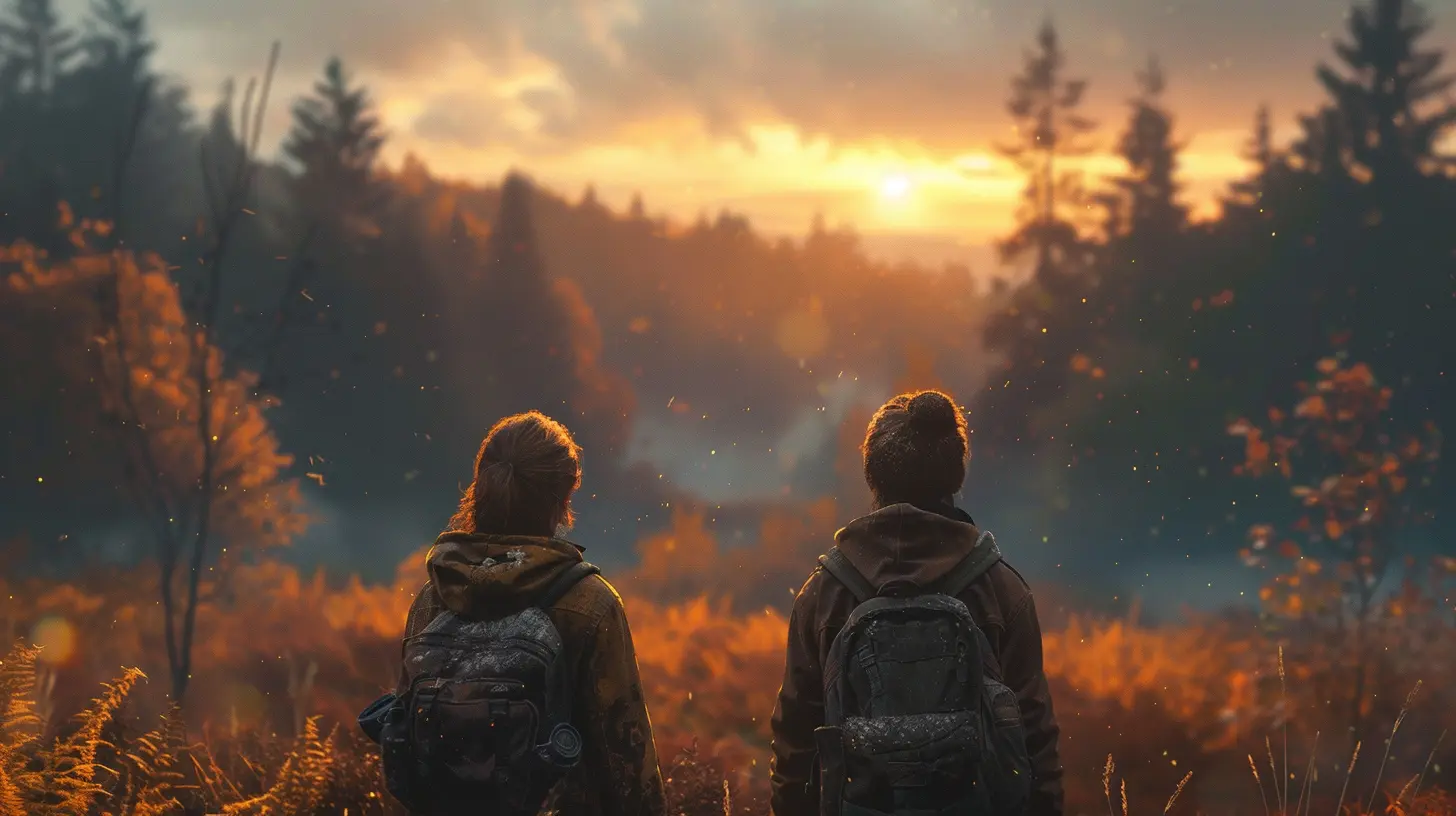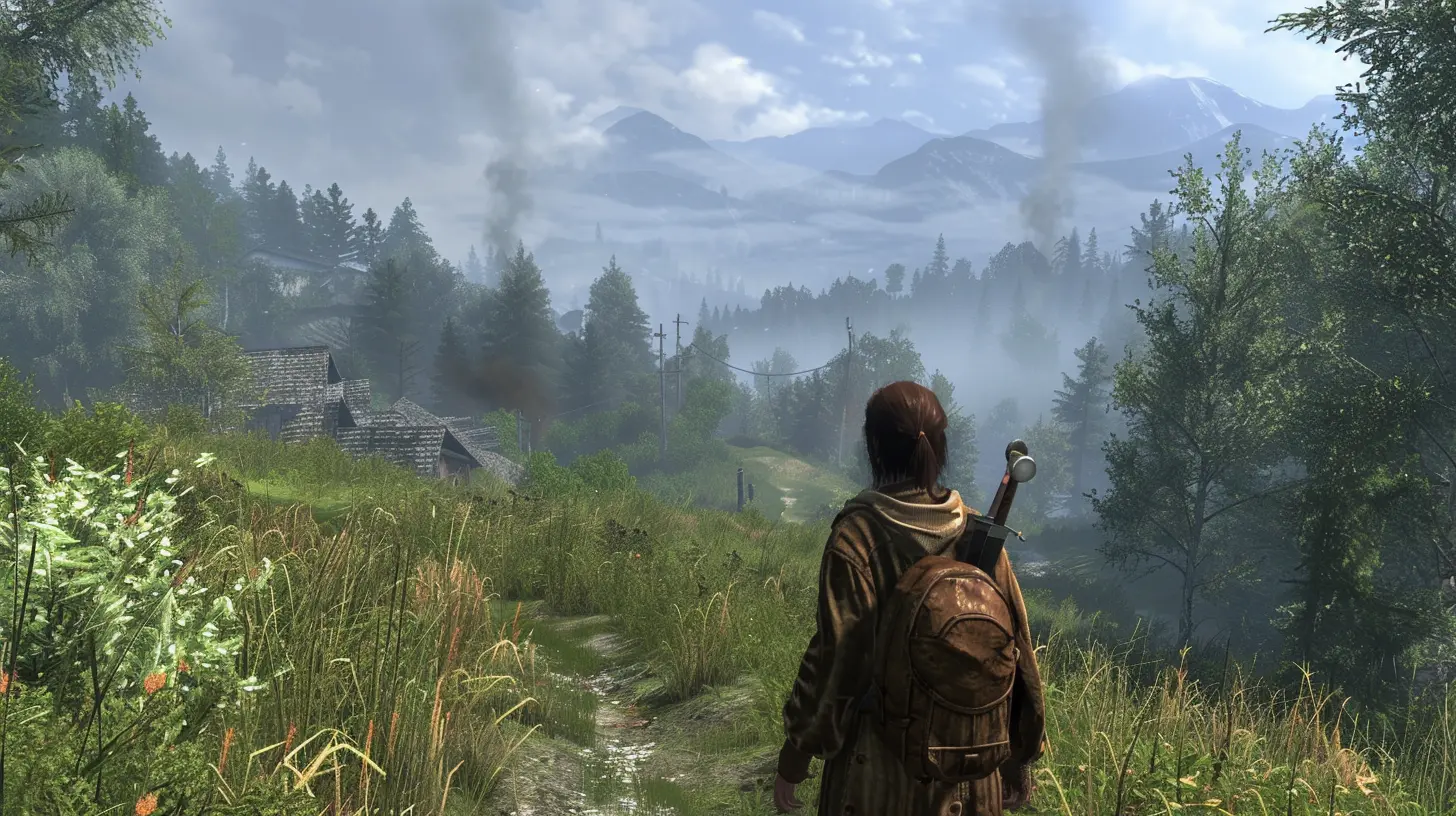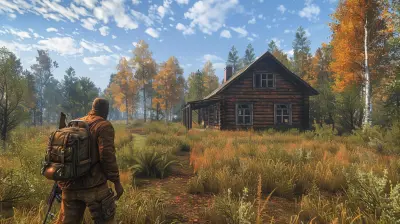Going Beyond Dialogue Trees: New Innovations in Player-Driven Stories
3 January 2025
Let’s face it: we’ve all been there. You’re playing an RPG, you’re talking to an NPC, and—boom—you’re hit with a list of dialogue options as lifeless as the gray walls in an office cubicle. You pick one, they drone on, and you wonder, "Is this really all storytelling in games has to offer?" Thankfully, we’re entering a golden era where developers are ditching those rigid dialogue trees and finding new ways to make storytelling in games feel dynamic, personal, and—well—actually fun.
So, let’s dive right in, shall we? What’s shaking up the world of player-driven stories? What’s breaking the mold that’s made so many games feel like "choose-your-own-adventure" books where the choices aren’t nearly as meaningful as they pretend to be? Hint: it’s way cooler than just branching paths and canned responses.
The Old Reliables: Why Dialogue Trees Aren’t Enough Anymore
First off, let’s give credit where credit is due. Dialogue trees aren’t inherently bad. I mean, they’ve been the go-to system in games for decades for a reason. Whether it’s Mass Effect, Fallout, or Dragon Age, these systems have given us some iconic moments, no doubt. But the problem with them? They’re… predictable.It’s like eating pizza every Friday night. Sure, pizza is great, but eventually, you’re craving something new—like tacos or sushi, right? Dialogue trees are like pizza. (Stay with me here.) You know exactly what’s coming:
- Option A: Be nice
- Option B: Be a jerk
- Option C: Sarcasm, because why not?
- Option D: Ask a boring question
And yeah, your choice impacts the story a little, but more often than not, it still funnels you toward the same few outcomes. Where’s the freedom? Where’s the risk? For games to truly feel alive, they need to move past this one-size-fits-all formula. 
The Rise of Emergent Storytelling: Letting Players Write Their Own Narratives
Now, here’s where things start to get spicy. Imagine a game where the story doesn’t just happen to you—it happens because of you. This is exactly what emergent storytelling aims to do. Instead of relying on pre-written dialogue options, games are increasingly leaning into systems that let players shape the narrative organically.Take The Sims, for example. It doesn’t spoon-feed you a story. Instead, you create it by interacting with the game world, whether that means throwing a pool party, starting petty drama with your neighbors, or trapping your Sim in a basement (don’t lie, we’ve all done it). The magic here isn’t in the scripted dialogue—it’s in the systems that react to your choices in unexpected ways.
And it’s not just life sims doing this. Look at Dwarf Fortress or No Man’s Sky. These games use procedural generation to craft worlds and narratives that are unique to every player. It’s like being handed a blank canvas and some paint, instead of a coloring book where the lines are already drawn for you. 
Replacing Dialogue Trees With Systems That “Feel” Human
Alright, so how are games actually pulling this off? I hear you asking. One big way is through advanced AI. (And no, we’re not talking about chatbots or Alexa-level AI here—this is way cooler.)Take Disco Elysium, for instance. That game doesn’t just give you dialogue options; it lets different parts of your character’s psyche chime in with their own unique voices. Feeling impulsive? Your Limbic System might urge you to do something reckless. Feeling logical? Your Encyclopedia skill might offer up a nerdy fact, instead. It’s like having an inner monologue that’s alive and kicking—a far cry from the static, cookie-cutter options of traditional dialogue trees.
Another example? AI Dungeon. This game uses machine learning to craft completely unique narratives based on the player’s input. You’re no longer limited to picking from four pre-written options—instead, you can literally type in anything, and the game will respond in kind. It’s messy, sure, but it’s also a tantalizing peek at what the future of gaming could look like. 
Context Matters: Stories That Evolve Based on Your Actions
One of the biggest issues with dialogue trees is that they’re so detached from what you’re actually doing in the game world. Like, imagine you just obliterated an enemy base in some epic battle, and then the next NPC you meet still asks, “Hey, have you seen any threats around here?” It’s immersion-breaking, to say the least.That’s why some games are focusing on contextual storytelling—narratives that adapt to the player’s actions, not the other way around.
Consider Red Dead Redemption 2 and its honor system. The way NPCs interact with Arthur Morgan isn’t just based on what you say—it’s based on how you live your cowboy life. Are you robbing everyone in sight? Expect fewer friendly faces when you roll into town. Are you a morally upright gunslinger? Congrats, you might get a free drink at the saloon. It’s subtle, but it makes the world feel alive, like it’s actually responding to who you are as a player.
Another standout? The Witcher 3. Choices you make in one part of the game can ripple out and affect events hours—or even dozens of hours—later. It’s less about picking the “right” option and more about thinking, “Okay, what would Geralt actually do here?”
The Future: What’s Next for Player-Driven Stories?
Here’s the exciting part: we’re just scratching the surface. With advancements in machine learning, procedural generation, and even neural networks, the possibilities for player-driven storytelling are basically endless.Imagine a game where every NPC has their own AI-driven personality and backstory, dynamically changing based on how you interact with them. Steal from a shopkeeper? Maybe they hire a bounty hunter to track you down. Save a random villager? Maybe they show up later to help you in a critical moment. These aren’t just pie-in-the-sky ideas—this kind of storytelling is already being prototyped by indie devs around the world.
And let’s not forget about VR. Virtual reality adds a whole new layer of immersion, making it feel like you are the one shaping the story, not just the character you’re controlling. Companies like Oculus and Valve are already experimenting with blending realistic dialogue systems with player-driven narratives. Imagine arguing with an NPC—and actually having to convince them using your voice, not just clicking on an option that says, “Persuade.”
Wrapping It Up: Moving Past the Static Toward the Organic
So where does this leave us? Well, if gaming has taught us anything, it’s that innovation doesn’t stop—it just finds new ways to blow our minds. Dialogue trees have had a good run, but they’re starting to feel like relics of the past.The future is all about dynamism, systems that react to us, and stories that feel truly ours. Whether that’s through emergent gameplay, AI-driven NPCs, or even procedurally generated narratives, one thing is crystal clear: gaming is evolving, and we’re here for it.
Because at the end of the day, isn’t that what we all want? To feel like our choices matter, that we’re more than just ticking off boxes on some invisible script? The games of tomorrow promise to make players the authors of their own experiences, and honestly? That’s pretty darn exciting.
all images in this post were generated using AI tools
Category:
Interactive StorytellingAuthor:

Kaitlyn Pace
Discussion
rate this article
13 comments
Wynter McVicker
Finally, a plot thicker than my coffee!
February 12, 2025 at 3:32 AM

Kaitlyn Pace
Thank you! I'm glad you found the plot engaging—just like a good cup of coffee, it should have depth and richness!
Holden McCoy
This article sparks my curiosity! Exploring innovations beyond dialogue trees could revolutionize storytelling in games. I’m eager to see how these developments will enhance player agency and emotional engagement. Exciting times ahead!
January 31, 2025 at 3:21 PM

Kaitlyn Pace
Thank you for your enthusiasm! I’m glad the article resonated with you, and I share your excitement about these innovative storytelling developments. Stay tuned for more insights!
Sophia Heath
Absolutely loved this article! It's refreshing to see how games are evolving beyond traditional dialogue trees. The potential for dynamic storytelling and richer character development is so exciting! Can't wait to see how these innovations will allow players to shape their narratives in more meaningful ways. Keep up the great work!
January 26, 2025 at 4:51 AM

Kaitlyn Pace
Thank you! I’m glad you enjoyed the article. Exciting times ahead for storytelling in games!
Raven Barnes
Oh great, more ways for my character to ignore my romantic advances! Can’t wait for the new “awkward silence” feature in the next update!
January 23, 2025 at 5:28 AM

Kaitlyn Pace
I get it—those silent moments can be frustrating! But think of them as opportunities for deeper character development. Stay tuned for more ways to connect!
Audrey West
Who knew our choices had so many branches? With dialogue trees evolving into forests, it’s time to grab our virtual compasses and navigate the wild world of player-driven stories—hope you packed snacks for the journey!
January 19, 2025 at 4:52 PM

Kaitlyn Pace
Absolutely! Exploring player-driven stories is like embarking on an adventurous journey—so many choices to discover and snacks for creativity along the way!
Kismet Cruz
This article brilliantly explores how innovative mechanics enhance player agency in storytelling. Excited to see how these developments will shape future gaming experiences! Great insights!
January 16, 2025 at 3:28 AM

Kaitlyn Pace
Thank you for your thoughtful comment! I'm glad you enjoyed the article and share the excitement for the future of player-driven storytelling in games!
Jinx McCaffrey
This article brilliantly explores the evolution of player-driven storytelling in games. The shift from traditional dialogue trees to more immersive innovations enhances narrative depth and player agency, resulting in richer experiences and more meaningful choices. Exciting developments ahead!
January 13, 2025 at 4:06 PM

Kaitlyn Pace
Thank you! I'm glad you enjoyed the article and appreciate your insights on the evolution of player-driven storytelling. Exciting times indeed!
Candace Jordan
Great insights! It’s exciting to see how game narratives evolve beyond traditional dialogue trees. Keep up the innovative work!
January 10, 2025 at 5:40 PM

Kaitlyn Pace
Thank you! I appreciate your support and enthusiasm for the evolution of game narratives. Exciting times ahead!
Aubrey McManus
This article brilliantly highlights the shift from traditional dialogue trees to more immersive storytelling techniques in games. By emphasizing player agency and innovative narrative structures, it showcases how developers are pushing boundaries. Excited to see how these advancements shape future gaming experiences and deepen emotional connections with players!
January 7, 2025 at 4:12 PM

Kaitlyn Pace
Thank you for your insightful comment! I'm glad you enjoyed the article and share the excitement for the future of immersive storytelling in games.
Vivian McLaurin
This article highlights exciting advancements in player-driven narratives, showcasing how innovative mechanics enhance storytelling beyond traditional dialogue trees, creating immersive and dynamic gaming experiences. Great read!
January 6, 2025 at 5:05 PM

Kaitlyn Pace
Thank you! I'm glad you enjoyed the article and found the advancements in player-driven narratives exciting. Your feedback means a lot!
Trevor Hodge
Absolutely love this topic! It’s exciting to see games evolving beyond traditional dialogue trees. Player-driven stories open up a world of creative possibilities, allowing us to immerse ourselves in unique narratives. Here’s to more innovative storytelling that empowers players to shape their own adventures. Keep up the fantastic work!
January 5, 2025 at 3:47 AM

Kaitlyn Pace
Thank you! I'm thrilled you enjoyed the article. It’s an exciting time for storytelling in games, and I agree—player empowerment opens up incredible possibilities!
Hesper McKinley
Exciting advancements! Player-driven narratives are evolving into immersive experiences.
January 4, 2025 at 4:40 PM

Kaitlyn Pace
Thank you! It's thrilling to see how these innovations are reshaping storytelling in games. Players are at the heart of these evolving narratives!
Gemma Good
Player-driven stories deserve more than dialogue trees; innovations should empower players to shape narratives in meaningful, impactful ways. Let's evolve!
January 3, 2025 at 5:21 PM

Kaitlyn Pace
I completely agree! Expanding beyond dialogue trees can truly enhance player agency, allowing for richer and more impactful storytelling experiences. Let's push the boundaries of narrative design!
MORE POSTS

Nintendo Switch Games on Sale That Are Actually Good

RPG Games on Sale That Deserve a Second Chance

Modding Sci-Fi Games: Expanding Your Universe

The Most Lucrative E-Sports Tournaments You Need to Follow

Discovering Hidden Secrets in Popular Survival Games

Is Co-op or Competitive Better? Exploring Different Social Game Styles

Games with Revolutionary AI Systems Coming Soon

Third-Person Shooters with the Most Realistic Weapon Physics

Third-Person Shooters with Unforgettable Boss Fights